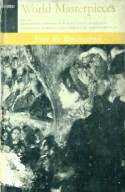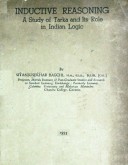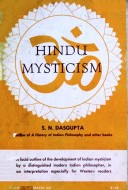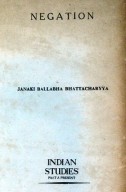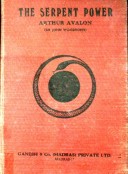Tìm Sách
Sách tiếng Anh-English >> Buddhism In Chinese History
Thông tin tra cứu
- Tên sách : Buddhism In Chinese History
- Tác giả : Arthur F. Wright
- Dịch giả :
- Ngôn ngữ : Anh
- Số trang : 139
- Nhà xuất bản : Oxford University Press
- Năm xuất bản : 1959
- Phân loại : Sách tiếng Anh-English
- MCB : 12100000002610
- OPAC :
- Tóm tắt :
Buddhism In Chinese History
STANFORD STUDIES IN THE CIVILIZATIONS OF EASTERN ASIA
Editors Arthur F. Wright George Sansom John D. Goheen Robert H. Brower MarY Clabaugh Wright
Arthur F. Wright
STANFORD UNIVERSITY PRESS • STANFORD, CALIFORNIA LONDON: OXFORD UNIVERSITY PRESS 1959
STANFORD UNIVERSITY PRESS STANFORD, CALIFORNIA
London: Oxford University Press 1959
BY THE BOARD OF TRUSTEES OF THE LELAND STANFORD JUNIOR UNIVERSITY ALL RIGHTS RESERVED
PRINTED IN THE UNITED STATES OF AMERICA
MARY CLABAUGH WRIGHT
PREFACE
This volume is based on six lectures presented at the University of Chicago under the joint sponsorship of the Department of Anthropology and the Federated Theological Faculty. It was the hope of my sponsors that the lectures might interest a broad segment of the educated public in a subject that is both integral to the history of a great civilization and relevant to the problem of the interrelations of cultures in our time. The lectures are presented here much as they were given and with the same hope and intent. Annotations and technical details have been kept at a minimum, and a list of further readings has been added for the use of those who may care to explore one or another aspect of the subject.
The six essays in this volume are an attempt at reflective interpretation of one of the great themes in the history of civilizations. No one is more aware than their author of the vast unexplored reaches of history and data that make such an interpretation necessarily tentative and imperfect. Yet I believe the scholar should occasionally stand back and contemplate the whole continuum of time and of problems which give meaning to his specialized studies. He should, it seems to me, report the results of his reflections both to his colleagues in the learned world and to the educated public In this way he may hope to contribute to the cumulativegrowth of understanding that is the justification of all scholarship.
The present volume is intended as this sort of report— on work done in a relatively neglected field of study, on conclusions reached, on relationships discerned between different orders of facts or events, on problems encountered and unsolved. Such a report has been made possible by the rapid advance of modern scholarship in the fields of Chinese and Buddhist studies} in the last forty years the mythologized accounts that passed for Chinese history have been critically analyzed, and a few periods and problems have slowly come into focus. In the hands of pioneering scholars, the study of Chinese Buddhism has emerged from the limbo of pious exegesis to become an integral part of the study of Chinese civilization in its historic growth. I owe a particular debt to two of these pioneers: Professor Zenryü Tsukamoto of the Institute of Humanistic Sciences, Kyoto, and Professor Paul Demiéville of the Collège de France.
To acknowledge all the indebtedness I feel to those who have supported and stimulated my studies in the field of Chinese Buddhist history would impose on the reader. Let me therefore mention only those who have been directly concerned with this volume. Dean Jerald Brauer of the Federated Theological Faculty at the University of Chicago and the late Robert Redfield, Robert M. Hutchins Distinguished Service Professor of Anthropology at Chicago, provided the stimulus and the occasion for the first presentation of these essays. Professor Max Loehr of the University of Michigan kindly advised on the selection of illustrations. Mr. Jesse G. Bell, Jr., of the Stanford University
Press gave me the benefit of his unusual editorial acumen, and my wife, Mary Clabaugh Wright, served as expert but indulgent critic. Mrs. Mary H. Johnson typed the several drafts with patience and skill, and Mr. and Mrs. Conrad Schirokauer helped in the preparation of the index. I am indebted to Messrs. Allen and Unwin for permission to quote from the works of the master translator, Arthur Waley, and to the editors of the Journal of Asian Studiesfor allowing me to draw freely on my article “Buddhism in Chinese Culture: Phases of Interaction,” which appeared in that journal in 1957. The friendly cooperation of museums and their curators is acknowledged in the list of illustrations.
Arthur F. Wright
Stanford, California January7,1959
CONTENTS
ONE THE THOUGHT AND SOCIETY OF HAN CHINA
206 B.C.-A.D. 220
TWO THE PERIOD OF PREPARATION
CA. A.D. 65-317
THREE THE PERIOD OF DOMESTICATION
CA. 3I7-589
FOUR THE PERIOD OF INDEPENDENT GROWTH
CA. 589-9OO
FIVE THE PERIOD OF APPROPRIATION
ca. 900-1900
SIX THE LEGACY OF BUDDHISM IN CHINA
A SELECTION OF FURTHER READINGS
INDEX
 Facebook
Facebook
 Google
Google
 Google+
Google+


